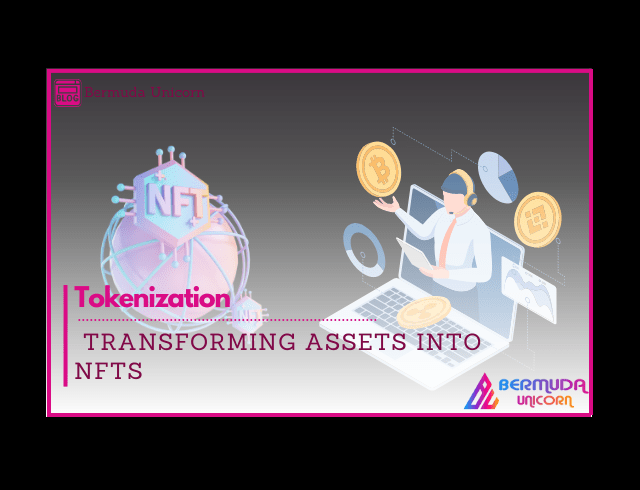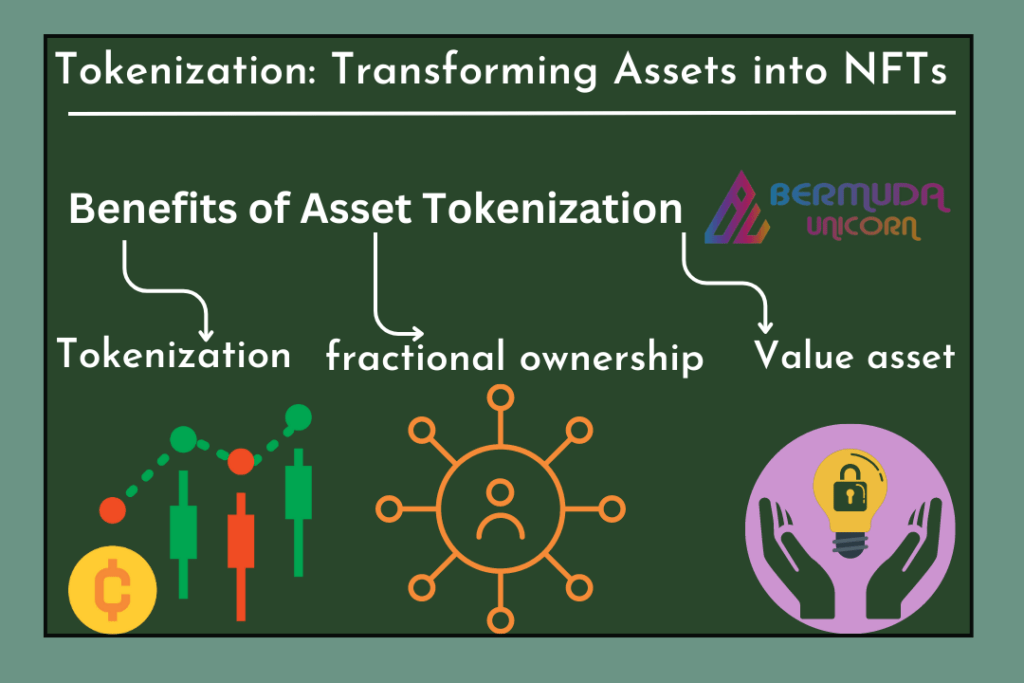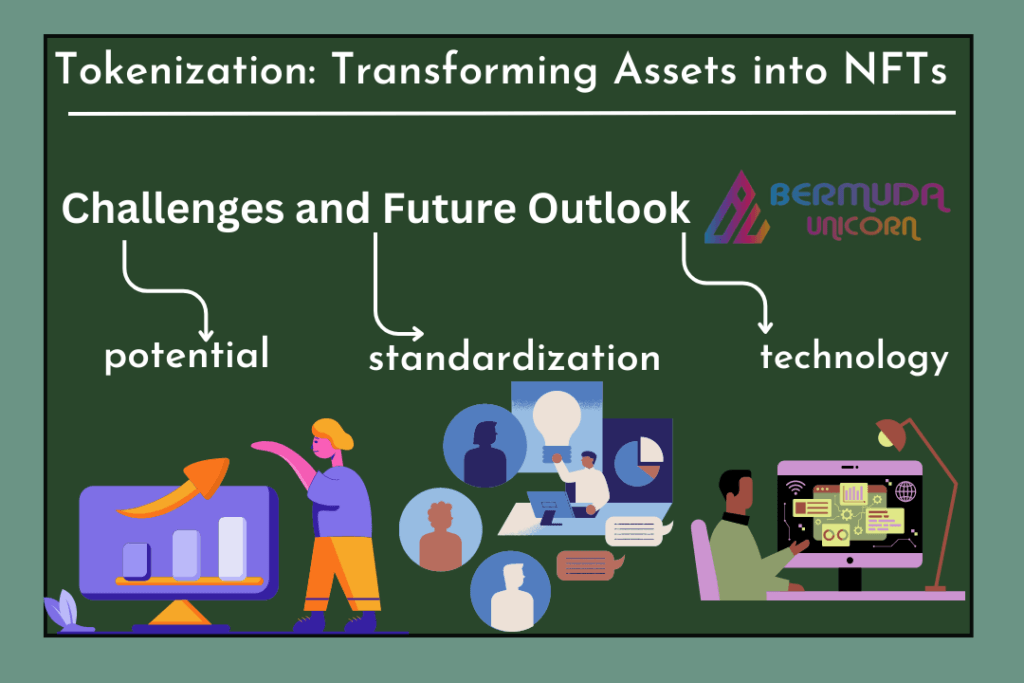![]()

Introduction
The innovative concept of tokenization was born, turning traditional assets into non-fungible tokens (NFTs). This piece explores the tokenization process, its significance, and how it is transforming how we view, trade, and monetize digital assets.
Understanding Tokenization
Tokenizations involve converting tangible or intangible assets, such as artwork, real estate, intellectual property, or even fractional ownership, into digital tokens on a blockchain. These tokens, known as NFTs, represent unique assets with provable ownership, authenticity, and traceability.
Benefits of Asset Tokenizations

Asset tokenization unlocks several benefits. It enables fractional ownership, allowing investors to own a portion of high-value assets. It enhances liquidity, as NFTs can be easily bought, sold, and traded. Tokenization also democratizes access to investments, breaking down barriers and opening opportunities for a broader range of investors.
Tokenization in Various Industries
Blockchain technology has also enabled the tokenization of supply chains, revolutionizing industries such as logistics and manufacturing. By tokenizing products and tracking their movement on the blockchain, companies can enhance transparency, reduce fraud, and optimize processes, ultimately leading to more efficient and trustworthy supply chains. Additionally, tokenization has made its way into the financial sector, where traditional assets like stocks, bonds, and commodities can be tokenized, unlocking new opportunities for trading, liquidity, and investment diversification. This has the potential to reshape the way financial markets operate and provide greater accessibility to a wider range of investors.
Challenges and Future Outlook

While tokenization offers tremendous potential, challenges include legal and regulatory considerations, standardization, and investor education. However, as technology advances and adoption grows, the future holds immense promise. Tokenization has the potential to revolutionize ownership, investment, and trading across multiple asset classes.
Conclusion
Tokenization has revolutionized the way we perceive and interact with assets. By converting traditional assets into NFTs, tokenization enables fractional ownership, enhances liquidity, and broadens access to investments. As this transformative concept continues to evolve, it will reshape industries and redefine the concept of ownership in the digital era.
